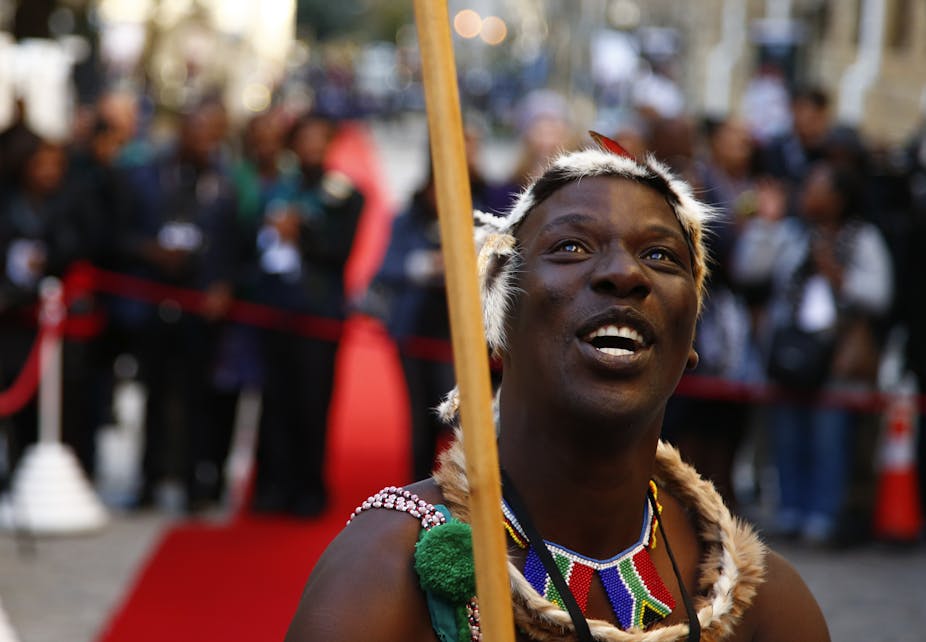As long as there is a written form of culture there will be written poetry. Poetry on the page exists the way that human eyes and deep pools of water do: it gives something back to us that is more – and different – to what it contains on the surface.
But some people believe that written poetry is under threat. This is because the spoken word and performance poetry is flourishing, drawing crowds of young people who respond enthusiastically to a predominantly oral, communal-based poetry.
How has this come about? Is this an indication of the obsolescence of written poetry?
Are these two forms – the oral and the written form – mutually exclusive? Do they share connections that have not yet been explored? To understand these questions will involve a re-assessment of what we generally understand to be poetry and its role within society.
Elitism versus the popular
In Africa oral expression is woven deep into the roots of the continent’s cultural traditions. Whether as songs, prayers, visionary chants, lullabies or praises, the vitality of this tradition has been a deep well-spring of inspiration – and continues to be so.
A confluence of rap, traditional praise poetry and street culture, contemporary spoken word and performance poetry is on the ascent. But the popularity of contemporary oral forms, as well as the backlash to them, are predicated on a number of myths around poetry. This has resulted in us misconstruing the distinction between written and oral poetry, misconstruing even what written poetry is and its purpose is.
Compelling South African poet Mxolisi Nyezwa demolishes the idea of poetry as an intellectual and academic pursuit in the 2014 special issue of the South African poetry journal, New Coin. He argues that poetry is a part of daily life and that it belongs to all, including the “illiterate masses”.
If we do not understand how this can be, it is because we have a notion of poetry as something rarefied, above, different from what we as human beings go through on a daily basis. This is a false idea of poetry. Poetry for me is basic. It is elemental. It is part of what makes us human.
Nyezwa further argues that part of the reason for this misconception of poetry is the fact that South African schools and universities still operate out of an elitism that favours the Western English canon – what is also referred to as The Great Tradition. Here is Lesego Rampolokeng on this notion of elitism in poetry in the poem For the Oral:
ORAL not a blow job though it goes for the top
Or maybe it is if you’re an academic
It’s got yeats on heat fat sweat keats bubbling to the beat
Rock to the rhythm of this poem of the year Shakespeare
Your bigotry begets my poetry
This sense of elitism separates popular, mass-based forms of expression from the solitary individual facing the page. I find this separation particularly iniquitous. Not only does it promote a high versus low division in culture, it promotes a false view of the poem on the page as divorced from the masses.
This is the heart of what I see as the false distinction between written forms of poetry and oral forms. If we separate poetry into these two categories then we fall foul of a whole number of misconceptions. We privilege elitism above the popular and build walls between them. And we end up with a reactive situation where oral forms are regarded as more hip, relevant and socially acceptable than written poetry – exactly because a warped view of written poetry has been adopted.
Critical, less egotistic view
It gets us nowhere to distinguish between page and stage poetry, except as terms in an analysis. There is bad and good on both sides. As Nyezwa writes:
Stage poets need to adopt a more critical and less egotistic view of their work. I am tired of poets from South Africa putting on American accents and borrowing US hip hop cadences to deliver their poems.
But page poets need to remember the origins of all poetry – in song, in prayer, in the human voice and, most specifically, in the rhythm of the heartbeat. It is there already. Look at the line. The beginning and the end of the poetic line as a unit of phrasing, of sense-making, of breath. That is part of what written poetry has inherited from the voice.
In South Africa we have poets who understand and feel the strength of the rhythms of voice and the expressive potential of the visual line. Try, just for starters, the work of Vonani Bila and Lesego Rampolokeng, Malika Ndlovu and David wa Maahlamela. Look for the Afrikaans poets Toast Coetzer or Gert Vlok Nel.
But also engage with those traditions outside the borders of our country, particularly some of the avant-garde traditions too often occluded in the west: language as sound, resonant and non-lingual in Canada’s The Four Horsemen; the concrete poetry of Brazil; and the Mbari Club in Nigeria in the 1960s.
Poetry is in our blood. It is in our breathing. Whether we read it quietly by ourselves or listen to it in an audience. Whether we sing it or speak it. It belongs to us all. We need it.

